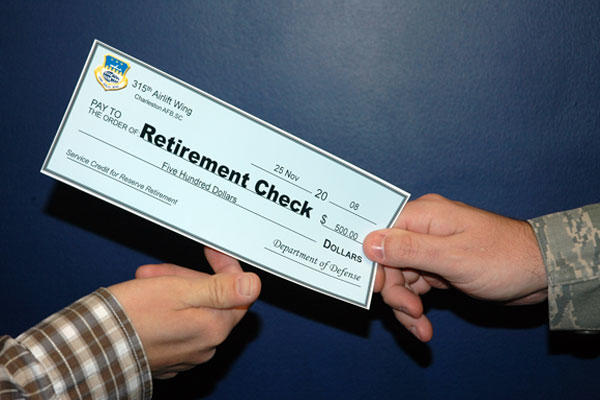You've spent years saving for your future, and now you're ready to relax and take it easy. But one question may be weighing on your mind: Which retirement accounts should you spend down first?
If you own both tax-deferred and taxable accounts, the answer can be complicated.
"The decision you make about which accounts to tap will affect more than just this year's tax bill," says USAA certified financial planner ™ practitioner J.J. Montanaro.
"It can also influence how long your money lasts, how much your family will inherit and how big a tax hit your money will take after you're gone," he stresses.
Rules of Thumb
In general, here's how you would tap your savings:
First, Spend Down Your Taxable Accounts. These include non-IRA mutual funds, savings accounts and brokerage accounts that don't offer any special tax breaks. There may be fees and tax consequences for withdrawals.
Next, Tap Non-IRA Savings Annuities. Contributions to savings annuities aren't deductible, but interest isn't taxed until it's withdrawn. There are costs associated with annuities, including surrender fees, early withdrawal penalties and mortality risk expenses.
Then, Take Money From Tax-Deferred Retirement Accounts. These include traditional IRAs, 401(k) plans, 403(b) accounts, SEP IRAs, SIMPLE IRAs and the Thrift Savings Plan for federal employees. Withdrawals made before age 59½ may be subject to a 10% federal penalty and ordinary income taxes.
Last, Hit Your Roth Accounts. Qualified withdrawals from Roth IRAs and Roth 401(k)s are tax-free -- and there's no requirement to begin withdrawing money at age 70½ from a Roth IRA.
Tailoring Your Spending Strategy
Those rules of thumb may not work perfectly for you, and you may want to talk with a financial adviser. Remember, you'll want to get all the tax breaks you are entitled to when you are no longer working.
Here are some situations that could affect you:
A temporarily low tax rate. "If you find yourself in a very low tax bracket one year -- perhaps because you have unusually large deductions -- you may want to seize the opportunity to tap traditional IRAs and other tax-deferred retirement accounts at a relatively low tax cost," Montanaro says. The same logic may apply if you think federal tax rates are likely to rise in the future.
"Sometimes members are in a situation where they could increase their taxable income by $10,000 to $15,000 and still remain in the 15% tax bracket," he explains. "In a situation like this, they may decide to voluntarily withdraw this amount of money from IRAs or retirement plans at what may turn out to be a favorable tax rate."
Large retirement plan balances. If you have a big chunk of money sitting in tax-deferred retirement accounts, that could mean a big tax hit when you reach age 70½. That's the age when the IRS requires you to start taking required minimum distributions based on your life expectancy. "By doing a little pruning of those accounts before you’re 70½, you may reduce the size of your required distributions, and your tax bill," Montanaro says.
A need for more guaranteed income. In a perfect world, your basic living expenses in retirement would be covered by Social Security, military retired pay and pensions. Typically, though, that's not the case. Buying an income or immediate annuity through an insurance company lets you create retirement income by turning your savings into a stream of payments you'll never outlive.
Taxable investments with big gains. Do you own shares of stock that are worth much more than what you paid for them years ago? Even though capital-gains tax rates in a stock sale are lower than the rates for ordinary income, "you may be better off holding on to those shares, leaving them to your children or gifting them to a charitable organization," Montanaro says.
In most cases, gifts of assets that have gained value allow the gift-giver to claim a deduction for the full value at the time of the donation. Also, ordinarily if you transfer appreciated assets, upon your death your heirs will have little or no capital gain.
A need for tax-free income. It may sound obvious, but it's especially true in retirement: Your yearly income heavily drives your federal income tax. For example, your gross income influences the availability of deductions and exemptions, as well as how much of your Social Security income is subject to taxes. "Because qualified withdrawals from Roth IRA accounts are free from federal income tax, they can serve as an invisible source of income that cuts your tax bill in more ways than one," Montanaro says.




